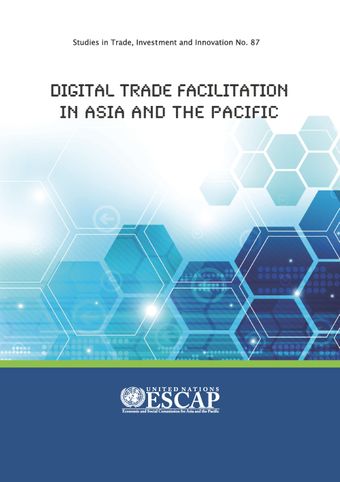Conclusion and way forward

- Author: United Nations
- Main Title: Digital Trade Facilitation in Asia and the Pacific , pp 70-71
- Publication Date: November 2018
- DOI: https://doi.org/10.18356/6a0f251e-en
- Language: English
- Previous Chapter
- Table of Contents
- Next Chapter
This study presented the state of play in trade facilitation implementation in Asia and the Pacific. It confirmed the importance of moving from paper-based to digital trade processes to reduce trade costs, which remain too high for many countries and stakeholders in the region to effectively participate and benefit from import and export activities. The need for paperless trading has been acknowledged in many bilateral and regional trade agreements since the mid-1990s, but actual implementation has been slow and often limited to pilot projects and/or bilateral exchanges of specific documents. Arguably the most advanced plurilateral cross-border paperless trade initiative of the region, the ASEAN Single Window (ASW) has seen significant delays since it was launched in 2005 and its implementation remained partial as of 2017, essentially limited to exchange of the preferential certificate of origin (CEPT Form D) among a subset of ASEAN members on a pilot basis. It provides, however, a useful basis for some of the digital trade facilitation solutions to be developed under the Framework Agreement on Facilitation of Cross-border Paperless Trade in Asia and the Pacific (FA-PT).
-
From This Site
/content/books/9789213631225c008dcterms_title,dcterms_subject,pub_keyword-contentType:Journal -contentType:Contributor -contentType:Concept -contentType:Institution105


